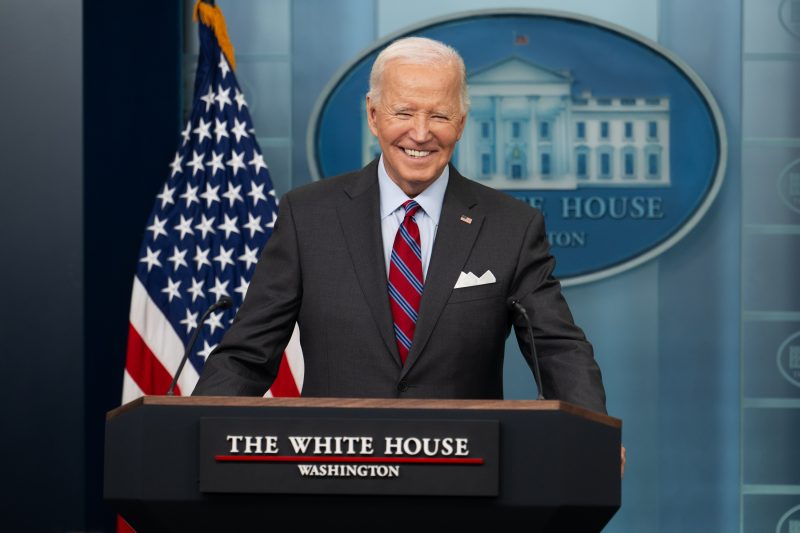In a recent incident that sparked political debate, President Joe Biden publicly challenged Senator Marco Rubio for his controversial assertion that the solid jobs report released by the Biden administration was fabricated. This confrontation underscored the deepening partisan divide in American politics and highlighted the clash between differing perceptions of economic progress within the country.
Rubio’s claim, widely disseminated on social media platforms, alleged that the positive job growth figures provided by the Biden administration were dishonest and intentionally misleading. The senator argued that the reported increase in employment levels was merely a veneer masking the underlying economic challenges faced by many Americans, particularly in the aftermath of the COVID-19 pandemic.
President Biden wasted no time in responding to this accusation, calling out Rubio during a press conference and presenting data to support the legitimacy of the jobs report. Biden emphasized the importance of factual accuracy and transparency in public discourse, condemning the spread of misinformation that seeks to undermine public trust in official statistics and government initiatives.
The clash between Biden and Rubio reflects broader tensions between the two major political parties, as well as differing ideological perspectives on the state of the economy. While the Biden administration portrays the improving job market as a sign of recovery and progress, Republicans like Rubio question the authenticity of these claims and raise concerns about the long-term sustainability of economic growth.
The exchange between Biden and Rubio also highlighted the role of social media in shaping public opinion and disseminating political narratives. In an era marked by the rapid spread of information online, verifying the accuracy of claims and holding public figures accountable for their statements has become increasingly challenging. The incident serves as a reminder of the importance of critical thinking and fact-checking in navigating the complex landscape of contemporary politics.
As the debate over the authenticity of the jobs report continues to unfold, it remains essential for policymakers and citizens alike to engage in respectful dialogue, grounded in evidence and reason. Addressing the underlying economic challenges facing the nation requires a comprehensive understanding of complex issues and a willingness to collaborate across party lines for the greater good of all Americans.



























